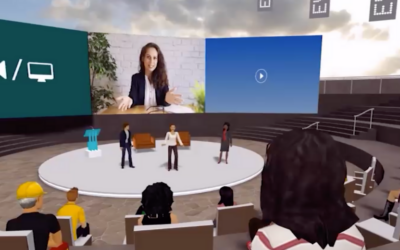If you haven’t already incorporated virtual events into your business repertoire, the current COVID-19 pandemic almost certainly has you considering doing so. While right now virtual events may replace live meetings by necessity, you may find that they become an integral part of your business even when in-person events are possible once again.
When done right, virtual events can be a huge asset to your business and increase your audience and reach. Here are some things to keep in mind when deciding how to structure a virtual event:
Choose the right event type
Virtual events come in all different forms, including pre-recorded or live-streamed webinars, virtual conferences, and teleconference-style meetings, among others. Be sure to choose the format that best fits your goals. For example, a pre-recorded webinar or a Livestream video may be very effective for lecture-based events, but will not suffice for an interactive event that requires two-way communication.
Ensure you have adequate technology
Be sure to choose the right platform, and test it before going live with the event. Does your chosen platform allow for two-way communication, if that’s what you need? Is your audio and video equipment sufficient to provide a quality listening and viewing experience for participants?
Use the right collaboration tools
Collaboration tools are a component of technology that will help you work with your team through a centralized information-sharing hub. This includes products like Monday.com, which while not used specifically for virtual events, will help with remote team organization and management leading up to and following the meeting.
Remember to market your event and get creative about alternatives.
Switching your annual conference to a virtual event this year? Make sure your event website and registration forms reflect the changes and answer participants’ questions about what technology is needed on their end. Get creative: do you need a new marketing mechanism to reach your ideal participants? Is there a way to send participants an e-gift rather than the swag bag they would’ve received in person?
Manage expectations
Your electronic meetings will never provide the same intimacy as an in-person event allows. Networking will be more difficult, and less organic. It is important that you keep these constraints in mind and communicate them ahead of time to participants.
Allow for feedback.
Provide a mechanism for participants to tell you what they thought of your event. This will help you move forward with a long-term plan for effectively including more virtual events.


